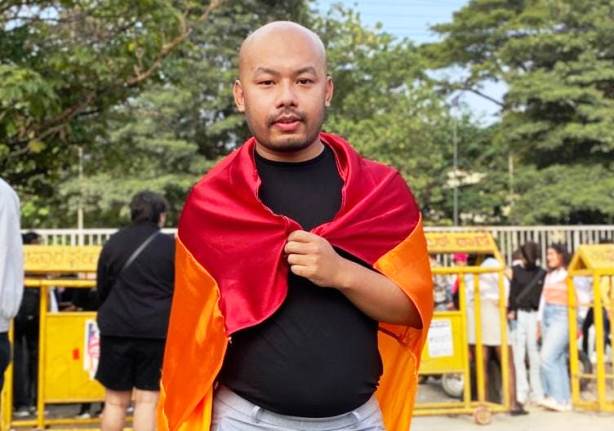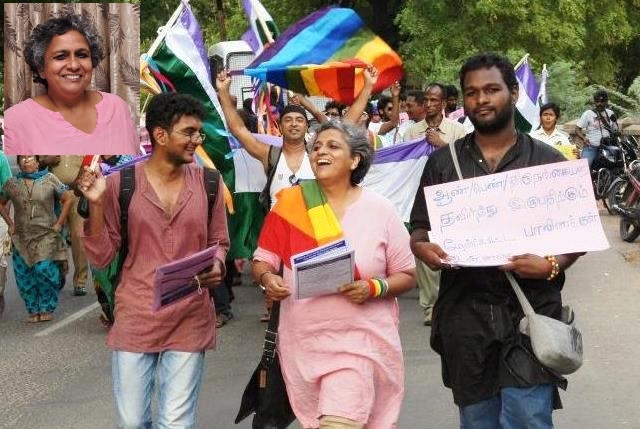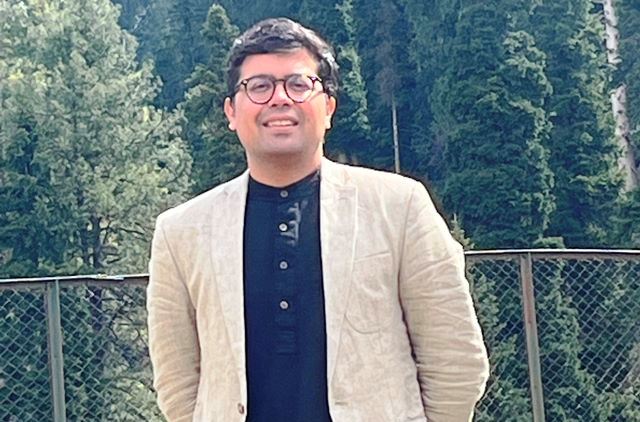Pamheiba Rajkumar, a member of the LGBTQ community, says that for him the SC order is a mix of disappointment and determination to keep fighting for the cause. His views
The Supreme Court has let us down by placing the fate of the same sex marriage in the legislative court. There was a glimpse of light this time and we were hopeful about some affirmative action. What the Supreme Court has done was “we recognize, we see you, but we can’t do anything about it.”
The complexity and challenges turn thousand-fold as now we must allow the legislative decide whether we are allowed to marry the person we love with all the due rights of being a partner/spouse being acknowledged. Nevertheless, we aren’t going to stay disheartened by the court decision, we are going to keep going forward and fight for the equal rights, that we deserve as a citizen of India.
Now, the battleground isn’t in the courtroom; it’s in the legislative arena. This decision has handed over the destiny of same-sex marriage into the hands of lawmakers. It’s a bit like navigating uncharted territory, with the potential for both positive and challenging outcomes.
The impact on LGBTQ rights is a tricky thing to pin down. On one hand, having the legislative process involved could mean a more democratic and representative approach to change. On the flip side, it introduces uncertainties and possible delays that we didn’t have to deal with in a direct Supreme Court ruling. I feel there is not much of an impact as of now because we must wait for the legislature to decide the future of queer couples and individuals. Since the decriminalization of Section 377, people had started talking about queers’ life. More representation is visible now. We need more allies if we want to win this fight, just as you have come up to me for my views.
ALSO READ: ‘SC Stand On Same Sex Union A Lost Opportunity’
We tried to get the recognition with the help of the existing Special Marriage Act, 1954 which was declined by the SC. Our hard-earned legal framework for same-sex marriage now faces the challenge of navigating the legislative maze, and that’s a bit nerve-wrecking.
In response to this curveball, LGBTQ rights activists and organizations are regrouping. We’re talking grassroots mobilization, community education, and building alliances like never before. The idea is not just to convince lawmakers but to build a groundswell of public support that can’t be ignored. Sharing personal stories and experiences becomes vital in putting a human face on the issue and breaking down barriers of misunderstanding.
Legal experts and constitutional scholars are now in the spotlight, helping us make sense of this new chapter. They’re digging into the potential outcomes of tackling same-sex marriage through the legislative process. While it might lack the immediate impact of a Supreme Court decision, it could offer a more enduring and widely accepted resolution. Constitutional scholars are dissecting the pros and cons, trying to figure out what this shift means for us in terms of impact and timelines.
The disappointment from the Supreme Court’s decision is real. But so is the realization that we’re entering a new phase in our fight for same-sex marriage. As an LGBTQ member, I’m not backing down. Yes, the legislative journey might be challenging, but it’s also a chance for our community to actively engage in a democratic process. It’s about making our voices heard and pushing for a resolution that reflects the diversity of our nation. Together, we’ll navigate this legislative landscape, drawing strength from our shared commitment to love, equality, and justice.
As told to Deepti Sharma
For more details visit us: https://lokmarg.com/


